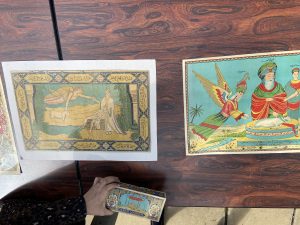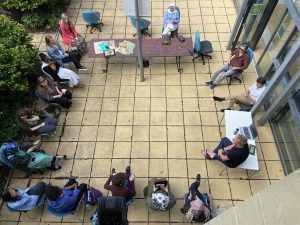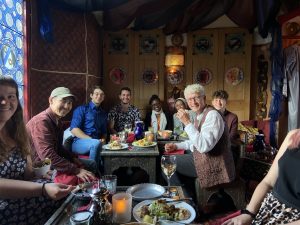In the second episode of our IICE podcast series, Professor Rob Gleave (RG), the director of the Institute, speaks to Professor Gabriella Giannachi (GG) about the Development Fund project Understanding How to Improve Support to Veterans During Transition into Civilian Life, which examines how cultural heritage and art can be activated to assist veterans in their transition into civilian life.
They discuss co-working with a group of veterans on a constantly evolving project; utilising heritage as a concept, practice and a method to support Veterans; responding to COVID research limitations by tapping into the possibilities of knowledge transfer, and exploring how research and policy can make a meaningful difference to a group of citizens marginalised by the society in which they live.
Listen to the podcast here or read the full interview transcript below.
Introduction
RG: Hello. You’re listening to a podcast from the International Institute for Cultural Enquiry, based at the University of Exeter. My name is Rob Gleave, and I am the director of the Institute. The Institute supports interdisciplinary teams of researchers working in cultural enquiry in their engagement with partner organisations outside of the University.
In this podcast, Professor Gabriella Giannachi discusses her engagement (through the Development Fund Project ‘Understanding How to Improve Support to Veterans During Transition into Civilian Life’) with military veterans in the South West of England. The Institute funded her team to explore with the veterans how cultural enquiry could help them in their transition from life in the military to civilian life.
*I should add that we would normally be able to record these podcasts in the Digital Humanities Studio on campus. But because of the current lockdown we are doing this from our own homes with our own equipment, so the sound quality may not be as we would like. Apologies for that but, in any case, I hope you enjoy this description of a highly rewarding and important collaboration between University of Exeter researchers and local veterans’ organisations.*
Interview
RG: Welcome everybody. I am joined today by Professor Gabriella Giannachi from the Department of English at the University of Exeter. Gabriella was one of the recipients of the International Institute for Cultural Enquiry Development Fund grants last year in 2020, and she has been doing a very interesting project on understanding the role of culture and heritage in supporting veterans during transition into civilian life.
So, Gabriella, can you just tell us a little bit about your project? What did it aim to achieve and what your main activities were?
GG: Yes. So, I’ll give you a tiny little bit of background as to why we decided to do the project because that might help to explain our aims as well. I came across a particular group of veterans as a part of an HLF (Heritage Lottery Fund) funded project in which we used heritage as a way to bring veterans together and help them to open up about themselves through a coffee morning experience and, whilst we were doing that, the veterans kept saying: ‘what about this?’, ‘can we not go to a museum’, ‘what about a walk?’, ‘how can we do this other thing’ and suddenly I realised that we could do so much more together with them. Hence this project, which was basically seeing how far we could go in utilising heritage and also art as both a concept, practice and even, indeed, a method to support Veterans- including some veterans with Post Traumatic Stress Disorder and other mental health related issues- in helping them through transitioning into civilian life.
So that was the original aim, and to do that we partnered with the Armed Forces Community Support Hub, which was the hub supporting these particular veterans in our HLF funded project. They have very extensive experience working with veterans in the South West, with 400+ clients in the South West alone. We decided to form an interdisciplinary team to unpack this, and that involved Dr Sarah Bulmer from politics and Dr Anke Karl from the mood disorder department in Psychology. We aimed to have two phases in the project: one in which we would interview the veterans and understand their thoughts in relation to the challenges of transitioning, and their thoughts on what heritage and culture could do, and then a second phase in which we would do a more hands on kind of forum and in-person activity.
Then, of course, the pandemic happened and all our aims to meet face-to-face and have gatherings and so-on had to change quite rapidly. On a practical level, these circumstances meant that it would be difficult to find a research associate to undertake the research activity, so I decided that it would be more interesting, perhaps, from the point of view of the Institute, to carry out some knowledge transfer. And, so, I taught one of the veterans how to do both a literature review, and how to do an interview within the parameters of ethics the University had set out for us to do. This, in the end, proved to be a much better proposition in the sense that, of course, the veterans opened much more to one of their own- the person I trained was a veteran herself- and she, in the process, was able to learn how to conduct an efficient literature review. So that first part allowed us to create a document in which we mapped out what these challenges and opportunities were, and then we had a second meeting with the entire group in which we workshopped these various points and they also identified art.
RG: So, they weren’t specifically interested necessarily in just military heritage, it was much more broadly understood, was it, in terms of what might help them with this transition?
GG: Yes, so there were two types of heritage that for us were interesting. Military heritage was one of them, but not exclusively. Natural environments and natural heritage were perhaps the areas that we started with, but we also identified the veteran as a form of heritage. Veterans have their own language; they have their own and understandings of certain terms, and they have their own cultural and practical habits in the way they engage with each other. I have found that when I walked into a room full of veterans and I didn’t understand what they were saying (and it’s not just because I’m Italian, although they might crack a joke and say ‘yes it is’) that we wanted to go both ways. We wanted to identify who veterans are, what they can bring to society, what they like to do, what they want to do, what they need to do, what would make them happier people, and also to understand what institutions and organisations could do to help veterans. We worked very closely with the National Trust on this, and they have been fantastic in helping us to see how this could be done. But for this project, we again decided to go the art way and to organise an art exhibition based on some works that they [the veterans] created themselves.
RG: Yes. We are going to put up some of those exhibition images, and you can see them at the link on the institute website.
There’s one question which would strike a lot of researchers in the humanities, which is: how did your research link into what the project aimed to do? How did you feel you used your research?
GG: So my background is in performance and new media, and in these particular fields the idea of documentation and archiving is really important because performance is a very ephemeral thing. It occurs, and unless you somehow capture it, document and preserve it for the future, there would be no future memory of it. I have done a lot of work in this field with various cultural organisations, particularly museums, but I decided at some point that I wanted to work with a different kind of organisation, and that is how my work with the football club started, which was funded by the Heritage Lottery Fund, where we identified sporting football as a form of heritage that was definitely worth preserving.
And, as a part of that, we decided that we would work with the veterans to try and see how different groups of people- veterans, but also people with mild forms of dementia- would engage with these heritage types, not only in talking about them and handling them, but also maybe in collecting them.
Once I started working with veterans, it was very clear to me again that we as a society tend to cut them out of cultural heritage. It became really important to me to find a way to reconnect them, but also to show cultural organisations how they could reconnect with veterans.
RG: It’s interesting because it seems like you initially had one project, and that grew into another project, which grew into another project, and this is the way in which a lot of engagement with external partners works… One project leads to another because you see the possibilities of using your research to engage with external partners?
GG: You know, Rob, you learn by listening, I think. When you work with partners you may have your own desires and objectives to begin with, but quite often you learn a lot by just listening to what they would like to do, what they need to do, or they have never done and dream of doing, and that is how one project came out of another. They became an absolute priority because of the absolutely dire conditions in which veterans tend to live in our society. But I just wanted to add, because before you asked me about outcomes and I hadn’t mentioned this, is that one of the directors of the Hub took the some of the findings of this project and developed a ‘straw man’ out of this, which I understand in military terms to mean a report for Whitehall.
RG: That’s fantastic. So therefore, you’ve got: the art exhibition, which is like a cultural product, if you like, of the engagement; you’ve got, hopefully, a policy impact somewhere along the line, but also the engagement with individuals and particularly the person that you enabled to be able to do literary reviews and interviews within an academic framework.
Was it a growth period for them as well?
GG: I hope so. You would need to ask them that question. It was certainly a growth period for me because I had never worked with veterans before, nor had I thought that I ever would. I have learned a lot from them, but for me this was a really important way to create a tie between research and a group of people who are living in our society but are largely neglected by it and see how much of a difference we can make, not only within the cultural sphere or within the political sphere, but also just by simply working together. By bringing together the capacity that we have as academics- as people who write grant applications and people who know how to talk to the press- how we can collaborate with partners, and really mutually benefit from each other.
RG: What’s important about your project is how you’ve identified a group which is marginalised in society more generally, and you’ve been able to reach out and provide something for them and they have also enriched your research life as well through that engagement.
Had they had very much contact with the university before?
GG: I don’t think so. And I think since then, because I quite quickly worked out where they could apply for grants, for example, and they since then have been able to apply to a couple of The Armed Forces Covenant Fund grants and have been able to set up a very wide range of activities with different groups of cultural heritage in the South West, and then also very quickly move all these online when the pandemic took place, which range from yoga and mindfulness to cooking to digging up archaeological findings, to working in a forest, and helping Rangers on Killerton (a National Trust Estate with expansive parkland located in Exeter). It has been a huge, fantastic and very quick journey within the arch of the year, and this project has really enabled us to then share some of these approaches with Sarah and with Anke in order to learn from them. Anke of course is a psychologist, and Sarah has done a lot of work in this field with veterans- she has an AHRC grant to work with veterans in heritage. It has been a fantastic learning journey for me and a wonderful challenge. I don’t know what difference I made to others, but it has made a huge difference to me, for sure.
RG: Where do you see the research going now? Do you think you’ll be able to develop this sort of approach to what you’ve learned from this project into future research activities?
GG: Yes. Definitely. If you go to the Veterans Hub Home page, I’m actually listed as a member of the team now, so you don’t start a collaboration like this to then interrupt it and give it up. I don’t know exactly where we’re going with this because the funding portfolio that would have normally been available to us is changing rapidly, but the Covenant has been a great source of funding for the veterans, and I’ve been able to map all sorts of activities in there that I think are necessary to them in the first instance. So that is where we are at the moment. If you ask me again in a few months’ time when the pandemic is over, I will be able to have a better and longer answer.
RG: Well Gabriella you really have done fantastically well considering the conditions under which you had to adjust and change the project various times, and it’s fantastic to hear about it.
Thank you very much for your time. Anyone that wants to have a look at some of the artistic products of the collaboration can have a look at the Institute website and you’ll get a link there to the online gallery, which is a wonderful resource. Thank you very much.
GG: Thank you. And thank you to all the veterans.
Well, there you have it. Thank you very much Gabriella, that was one of the podcasts linked to our development projects. The other podcasts are available on the institute website and, if you’ve got any queries, then by all means email us on culturalenquiry@exeter.ac.uk. That’s cultural enquiry, all one word, at exeter.ac.uk.
And I hope you’ll enjoy the other podcasts that are available, linking to our other development projects.
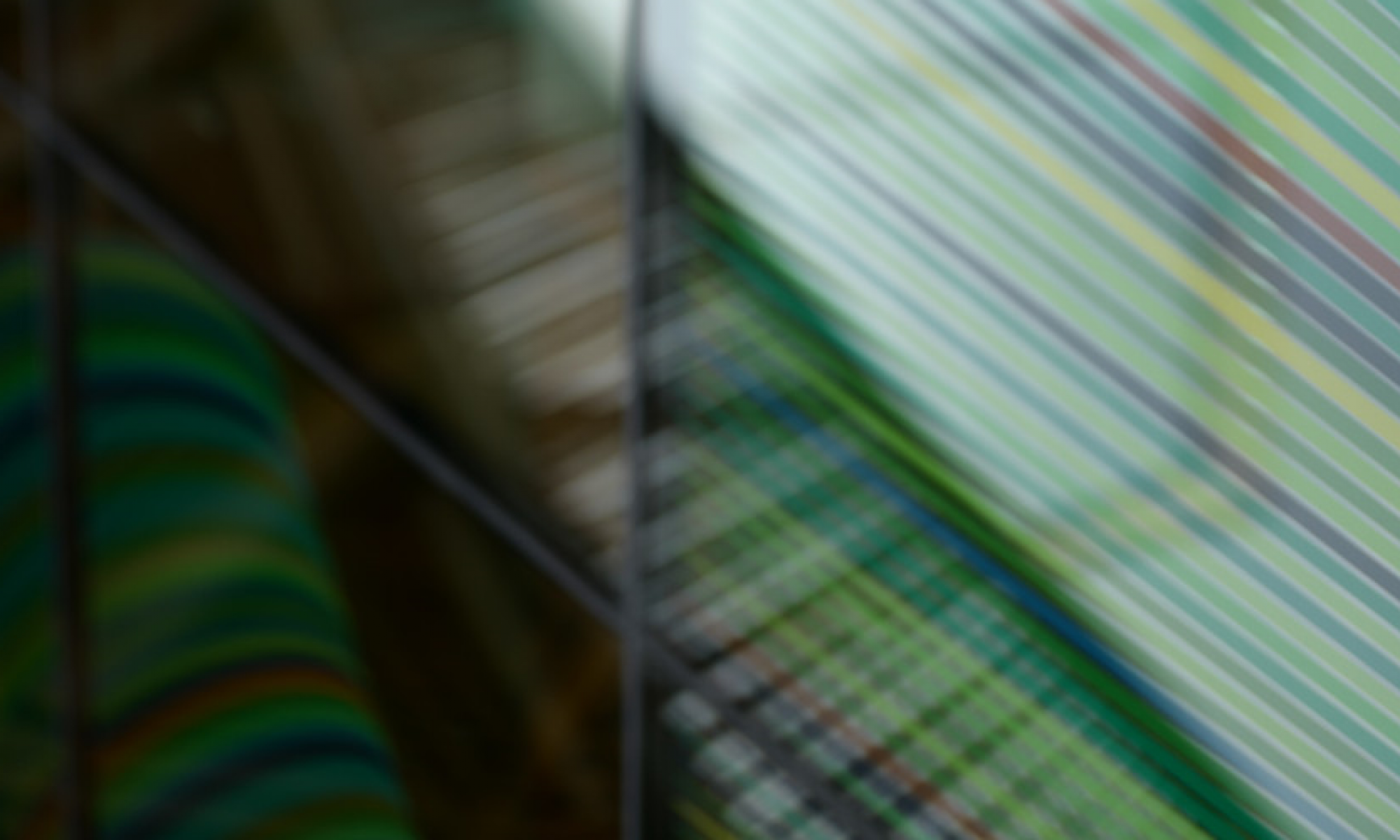
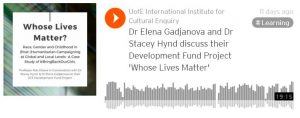
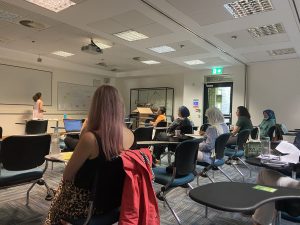 Speculative Methodologies explored speculation and wonderment as generative sites for decolonial praxis, considering processes of constructing methodologies in Black and decolonial studies and asking ‘How do we construct the subjects, contexts and questions of our research?.’ Drawing upon writings by Saidiya Hartman and AbdouMaliq Simone, the session created the space for considering “the minor” and “the uninhabitable” as spaces for speculation.
Speculative Methodologies explored speculation and wonderment as generative sites for decolonial praxis, considering processes of constructing methodologies in Black and decolonial studies and asking ‘How do we construct the subjects, contexts and questions of our research?.’ Drawing upon writings by Saidiya Hartman and AbdouMaliq Simone, the session created the space for considering “the minor” and “the uninhabitable” as spaces for speculation.